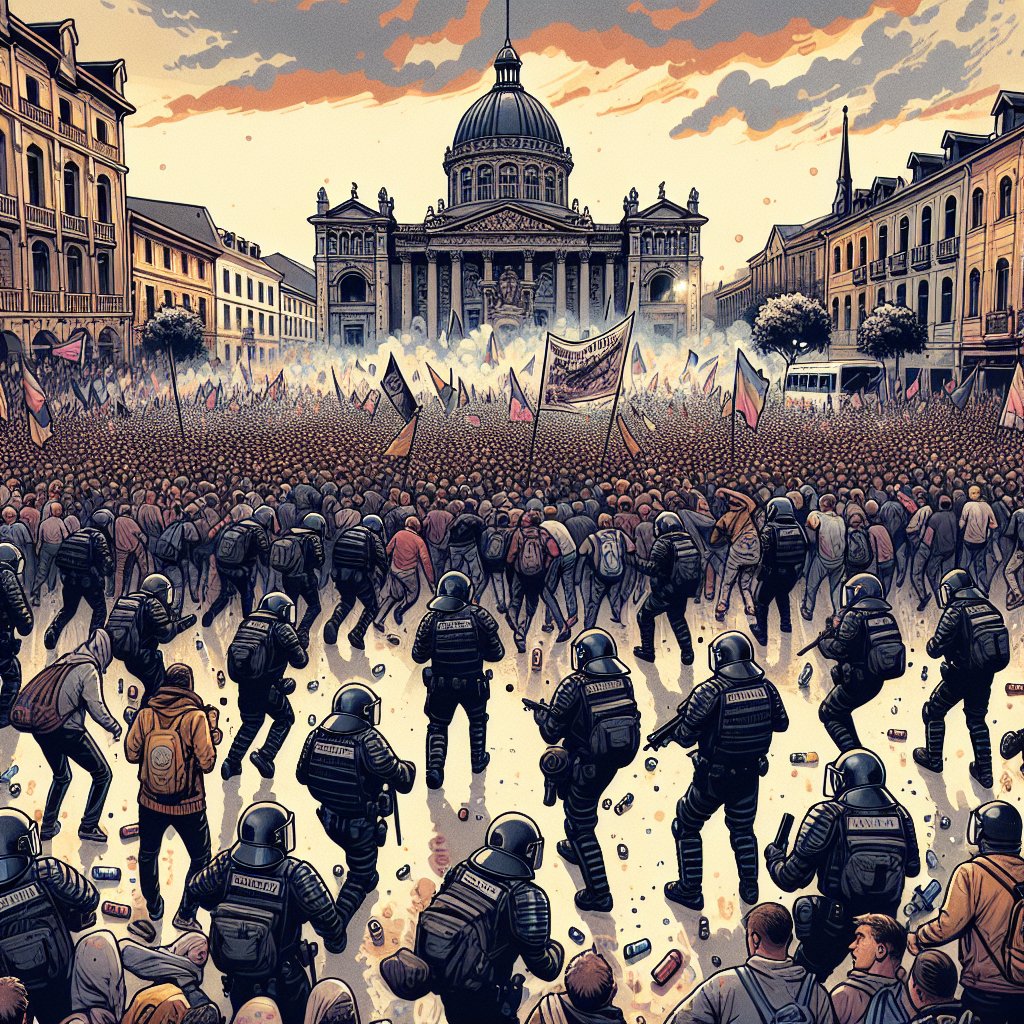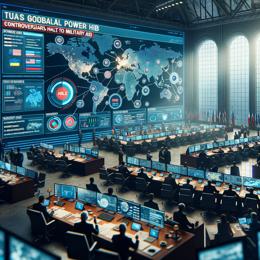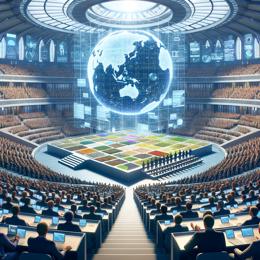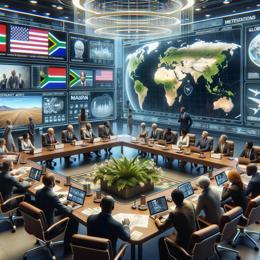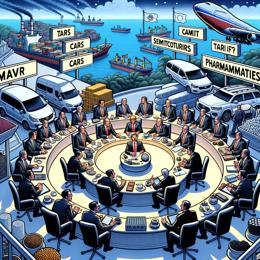Content created by AI
Protests Escalate in Serbia Amidst Claims of Election Fraud
The streets of Belgrade, Serbia's political heart, became the epicenter of a deepening political crisis following the controversial parliamentary and local elections held on December 17. Riot police responded with tear gas and pepper spray as hundreds of opposition supporters, amid cries of “Vucic thief” and comparisons of Vucic to Putin, attempted to force their entry into Belgrade City Hall on Sunday evening.
The crux of the unrest lies in the contestation of the preliminary results, declared by the electoral authorities, which saw President Aleksandar Vucic's Serbian Progressive Party (SNS) retain power with nearly 47 percent of the vote. The results were immediately disputed by the centre-left opposition alliance Serbia Against Violence, which claimed significant victory, particularly in Belgrade, and accused the ruling party of engaging in vote buying, ballot stuffing, and illicit influence to skew the results.
The legitimacy of the elections has not only been questioned by the opposition but also raised concerns amongst international observers, who reported various irregularities. Claims of non-residents brought in to vote further tainted the credibility of the electoral process, prompting Serbia Against Violence to call upon European Union institutions and member nations for support, urging them not to recognize the results and to initiate an independent investigation.
The leader of Serbia Against Violence, Nebojsa Zelenovic, voiced his determination, stating, “We will continue with our fight.” Vucic, unfazed by the opposition and its calls for a rerun, addressed the nation via a pro-government TV station, alleging that the turmoil was a premeditated assault on state institutions with foreign involvement and was certainly not part of a revolutionary cause.
More than 35 arrests followed the confrontation, and President Vucic pledged that there would be additional detentions. His stern admonishment to the protestors underlined the government's stance: the preservation of state property and the protection of law enforcement from harm trump any claims of electoral transgressions.
This political turbulence is not new to Serbia or President Vucic, whose administration was rattled by anti-government protests in May. The protests, prompted by a tragic spate of mass shootings, evolved into a wider expression of discontent over economic pressures and alleged rampant state corruption.
Amidst the internal discord, international political maneuvering plays its part. The Kremlin, having seen Serbia as a longstanding ally, expressed hope that the election would actually solidify the countries' friendship. Russia—Serbia's exclusive gas supplier and a country that has skirted Belgrade's sanctions—has hinted at Western interference in the unrest. Maria Zakharova, of the Russian foreign ministry, charged the collective West with attempts to destabilize Serbia.
Serbia's ambiguous stance in the Russia-Ukraine conflict, including a refusal to join international sanctions against Moscow, coupled with its condemnation of the invasion in the UN, has put the country in a controversial position within international geopolitics.
The election results and the violent protests represent more than a dispute over votes—they symbolize the fragile nature of democracy and stability in a region marked by its tumultuous history and modern-day global political complexities.
